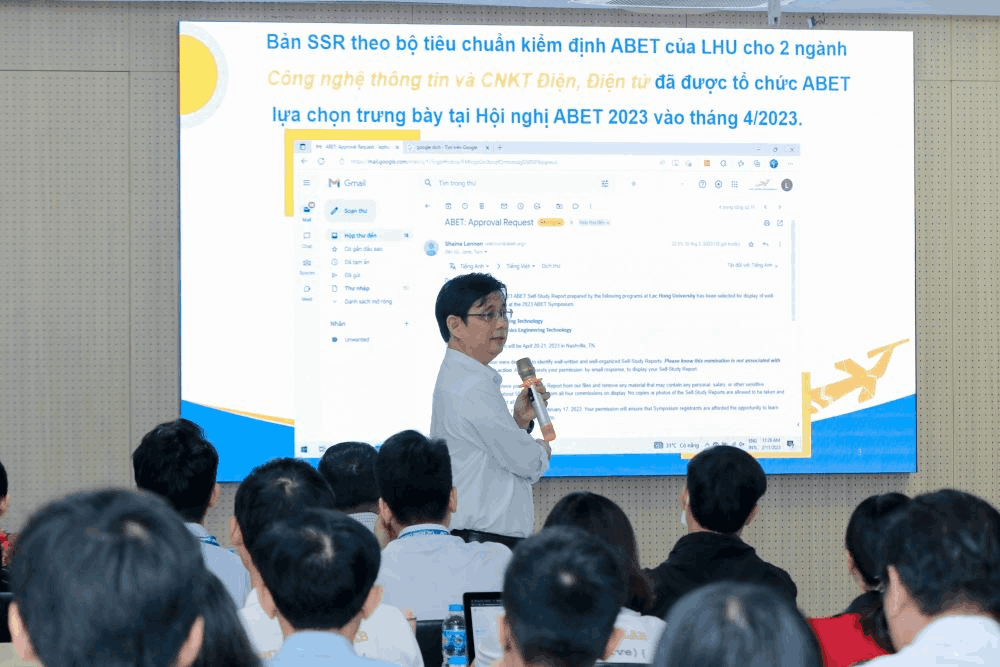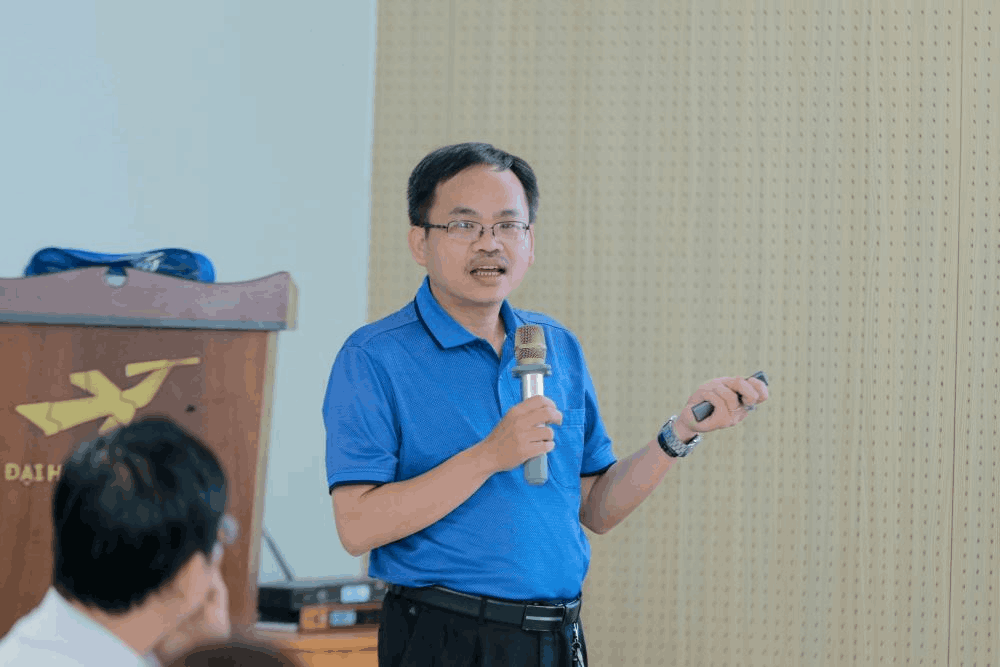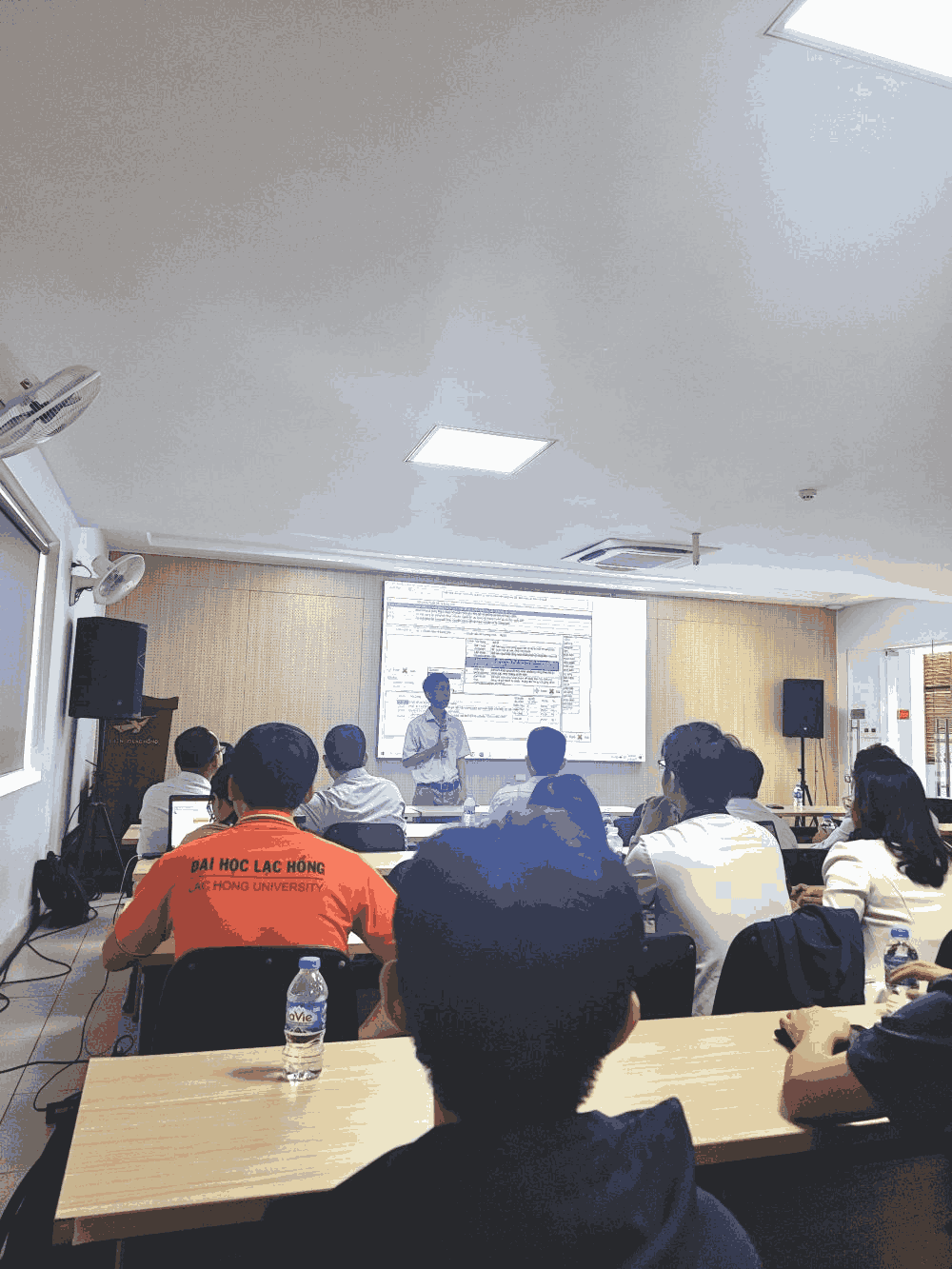News
Measuring Learning Outcomes & AI in Education
Lac Hong University’s Office of Educational Testing and Quality Assurance recently organized a two-day training session titled “Guidelines for Measuring Learners' Achievement of Program Learning Outcomes and Applying Artificial Intelligence (AI) in Designing Teaching and Learning Activities.” Held on January 6 and January 10, 2024, the session aimed to enhance faculty expertise in outcome-based education and AI integration. By aligning with ABET and AUN-QA standards, the training emphasized innovation and sustainability in education, equipping faculty with cutting-edge tools and methods to improve learning outcomes and teaching quality.
At the start of the session, Dr. Lam Thanh Hien, Rector of Lac Hong University, delivered a presentation on measuring program learning outcomes in alignment with ABET and AUN-QA accreditation standards. He also highlighted the importance of identifying skills and knowledge, and how to assess whether students meet the program learning outcomes. The training session was dynamic and interactive, as faculty members actively participated, shared their concerns, and sought clarification on various aspects.

Assoc. Prof. Dr. Nguyen Thanh Lam, Vice Rector, addressed the queries of faculty members and shared valuable insights on assessing program learning outcomes according to ABET and AUN-QA standards. His discussion included topics such as designing learning outcomes based on Bloom's taxonomy, creating detailed course syllabi aligned with the learning outcomes, and methods for evaluating the achievement of course learning outcomes. These insights provided faculty members with a comprehensive understanding of the methods for evaluating both course-specific and overall program learning outcomes.

Dr. Le Phuong Truong, Head of the Office of Educational Testing and Quality Assurance, introduced software for measuring and evaluating program learning outcomes. In the future, the aim is to install the software and delegate access to individual faculties, allowing them to directly input data into the system for easier measurement and evaluation. He further introduced the application of artificial intelligence (AI) in designing teaching and learning activities, providing faculty with useful tools such as question generation, rubric design, multimedia creation, article editing, and support in scientific research.

The training session provided faculty members with a deeper understanding of measuring program learning outcomes and the benefits and potential of applying artificial intelligence in teaching and research.
Some images from the seminar


The training session at Lac Hong University underscores its dedication to sustainable development, aligning with SDG4 and SDG9. By integrating AI into teaching and advancing outcome-based education, LHU equips its faculty with innovative tools to foster equitable, future-ready learning environments and uphold global educational standards.
References
LHU. (2022, June 24). KTĐBCL: Chia sẻ phương pháp đo lường đánh giá mức độ người học đạt chuẩn đầu ra CTĐT và ứng dụng trí tuệ nhân tạo trong thiết kế hoạt động dạy học. Retrieved from https://lhu.edu.vn/316/44845/KTDBCL-chia-se-phuong-phap-do-luong-danh-gia-muc-do-nguoi-hoc-dat-chuan-dau-ra-CTDT-va-Ung-dung-tri-tue-nhan-tao-trong-thiet-ke-hoat-dong-day-hoc.html
Workshop, AI, PLO, SDG4, SDG9

